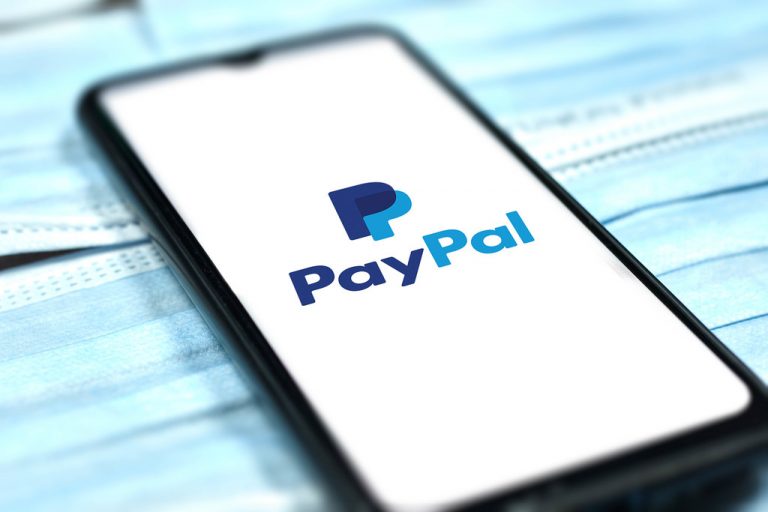Your bank account number is more than just a random collection of numbers. Instead, it’s an access code that can access different services and features from your financial institution. This means that anyone who knows your bank account number can access your internet banking, mobile banking, and credit card services. While this seems like something out of a movie plot, it’s true. Unfortunately, criminals are also aware of this. Let’s find out, “can someone hack your bank account with account number and routing number?
These hackers are always looking to find people with open bank account who may be willing to share their wealth. There are many ways to protect your personal information from hackers. Continue reading to find out how hackers can hack your bank account using a routing number and an access code.
Is it possible to hack your bank account with the Account Number and Routing number?
“No,” is the straightforward answer to this question. To protect your bank account against fraud, you should prevent others from accessing it. If you’re worried about someone accessing your account from a computer you don’t control, you can create a password you only know. Suppose you’re worried about someone accessing your account outside your home/office. Remote monitoring can be set up to monitor your activities from a computer or phone in another location.
What are Routing Numbers (Account Numbers)?
A bank account’s account number, which may be found on checking or money market accounts, comprises a series of numbers. Every account you have at the bank is given an account number. You would, for example, have two accounts numbers if you opened both a checking or savings account at the bank. A routing number is a nine digit number found in the left-hand corner of every check.
What time will you be asked to provide your Routing Number and Bank Account Number?
In various circumstances, you may be asked about bank account details and your unique ID. These two numbers are used in a variety of monetary operations. Since many individuals are bewildered by the difference between the two figures, it’s important to know how to tell them apart.
An id number is a series of numbers that identify the bank where you set up your account, while your details are the number given to you when you register a checking account. A financial company’s id number is similar for all clients, contrasting your bank account details, which are personal to you.
If you and your colleagues all established accounts with similar banks and regions, you’d have the same SSN.
What transactions will you need to disclose your bank account details?
If someone has to pay you.
If someone owes cash to you and wants to wire or transfer money digitally to your checking bank account, they will need to have your unique id as well as the checking account number. This number will allow the individual to transfer cash to checking accounts.
This is true even if you’re interested in joining a straight posting program. Let’s say you desire your boss to deposit your wage straight into your account rather than mailing you a physical check. This is the case where you need to give this information to your finance officer so that your annual paycheck can transfer.
When To pay online bills or purchases, you can use your bank account.
You could use your financial institution account to make buying process or pay your regular bills if you don’t have a credit card, checking account, or payment processing app. These transactions are known by the most common name, Automated Clearing Station transition or ACH transactions. For instance, you’ll need your bank account and routing information to make an ACH transaction.
If you are looking for a Apps for financial management To link to your bank accounts
You must provide your checking account and routing figures once you link your checking account to payment processing apps such as Pioneer and Venmo. Many financial planning apps, including Mint, require your banking details in order to monitor your accounts and pay your debts.
You can send a cheque or place an online order for a brand new set.
In the United States, many people still write paychecks on paper. One of the best arguments is that it keeps track of all fees paid. Many people do not realize that sending a physical cheque involves disclosing personal information such as your name, address, mobile number, approval, checking account details, and an id. Your route id and bank details usually appear on the lower end of all cashier’s checks you write.
When To send money, use your routing number and bank account.
Send money into an account by presenting your checking account information and unique ID. If the individual has these items, they can transfer funds easily.
If you are expecting cash from someone or on a bank transfer plan, accepting funds shouldn’t be a problem. You can still find huge amounts in your checking account. You must contact your lender immediately to determine where the money came.
If you find large amounts of money in your checking accounts, someone may be trying to get you into financial fraud.
How to Protect Your Bank Accounts From Hackers
These are the ways you can protect your bank accounts from hackers:

Each account should have a unique password
Most people are aware of the importance of using a secure password. However, even if your password is secure, it may not suffice to protect your bank account from hackers.
If you use the same password for multiple accounts, they all are at risk of being compromised. Hackers may be able to gain access to your accounts more easily if they have the same password. This could include bank accounts that hold your financial or payment information.
Leverage two-factor authentication
Two levels of security are better than one to protect your bank account from fraud. This is where two-factor authentication can be useful. You’ll need your password and an additional form of identification for this approach.
This could be a one-time code that allows you to log in to an account. Hackers would have difficulty getting in without your second verification, if they had access to your bank account login information.
Be careful when using the free WiFi.
You can access public WiFi anywhere, including your favorite coffee shop or your local library. It’s generally okay to read blog articles or to peruse the news. It’s advisable to avoid activities that need login credentials, such as logging into your online bank account. The open link between your computer and the bank website could make it easy for thieves to gain your login and password by using public WiFi.
Install ad blocking devices.
If they seem too amazing to be real, the advertisements that you see might be false. Malvertising is another fraud that could put your bank account at risk. This involves thieves creating advertisements with dangerous code.
You might see a freebie for software. Clicking on the malicious ad can cause your computer to download malware. This can lead to the theft of your identity. You might be able to launch an attack by simply opening the website with infected advertisements.
Use the resources and capabilities that your bank has to offer.
Learn about the security precautions that your bank has taken to safeguard your bank account. Your bank offers security tools that make it easier to protect sensitive information. Discover, for example, offers encrypted online and mobile banking which is both secure and safe.
Customers can secure access to their accounts via their smartphones by using a fingerprint login. This is a biometric authentication that uses your bodily characteristics. Biometrics can help protect your bank account against hackers because your fingerprint cannot be stolen or lost like a password character.
If you provide personal information, can your bank account be hacked?
Yes. A hacker may sometimes attempt to get your information by intercepting communications between you and the bank’s website. These attacks are called Man-in-the-Middle attack (MITM). As the name suggests, it occurs when hackers intercept conversations between you (the victim) and a trusted service.
Frequently Asked Question
Are bank accounts hacked all the time?
Yes. Yes. Around half of Americans have been hacked by scammers. Fraud can happen anywhere, so it is important to check your bank statements and credit card statements. You should also check your credit report once every three years.
Can someone hack into your bank account by using your number
Accessing your checking account usually requires more than your bank account number. If someone has both your routing and account numbers, they might be able access your account to withdraw money. Your debit card information could also be used by fraudsters.
Which bank is the most secure?
The following banks are considered the most secure:
- Wells Fargo
- JPMorgan Chase.
- U.S. Bank.
- PNC Bank.
- Citibank
- Capital One.
Is it safe for you to bank on your smartphone?
Yes. Most individuals who experience mobile banking breaches don’t take their safety seriously. As long as you use common sense, mobile banking can be a convenient and safe way to manage your money.
Are online banks safe
Online banks offer security. Online banks offer the same protection as nearby FDIC-insured banks, provided that the Federal Deposit Insurance Corp covers them. The FDIC insures each unique customer’s accounts up to a maximum of $250,000.
Is it reasonable for you to divulge your bank account information
Giving up your financial data to anybody, whether an individual, an online merchant, or a company, poses hazards. It depends on who you’re sending the data to and how you’re providing it to them, whether it’s reasonable to give out your bank account details to anyone.
Is it possible to use my routing number and account number to make a withdrawal.
Perhaps you’re thinking about how someone with my account number and routing number could steal money from my bank account. As we mentioned, there are several ways that someone can steal funds from your account. These include ACH transactions and scam checks.
Thus, the response is YES – scammers can use these methods to withdraw your money. These are major crimes so criminals often target businesses with larger cash balances. Because they are often less secure than other accounts, fraudsters are increasing targeting smaller and moderate businesses and individuals.
Is it worth opening a bank accounts?
Yes. Yes, despite fraud and hacking incidents, it is safer to keep your money at the bank than to store it at home.
Conclusion
There are many benefits to banks. These tips will help you tremendously if you’re one of those people who asks if someone can hack your bank account using the routing number and account number.
Opinion of a Personal
It is understandable that bank hackings are commonplace. This makes it easy for consumers to be concerned about their bank accounts being compromised. Because we are so used in protecting our personal data online, we sometimes forget to secure the physical copies our bank accounts. Although we no longer use paper checks for checking our accounts, information about our accounts is often used online to make purchases. In all, it’s best to protect your account through the tips highlighted above.
References



